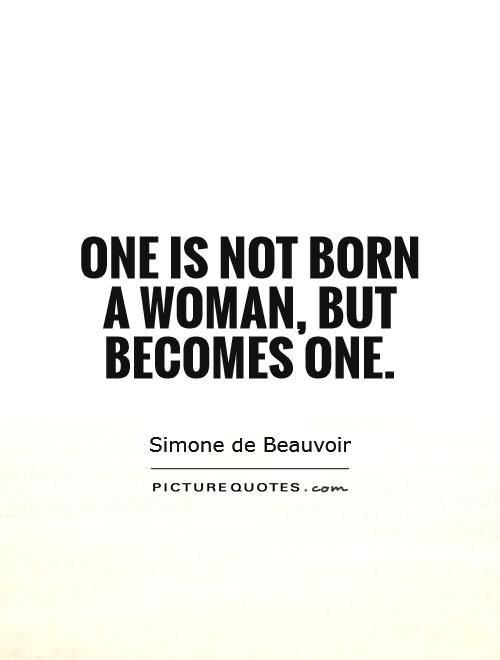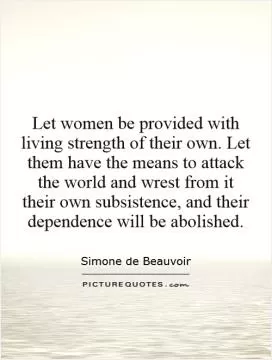
One is not born a woman, but becomes one

One is not born a woman, but becomes one
Simone de Beauvoir, a prominent French existentialist philosopher and feminist theorist, famously stated that "One is not born a woman, but becomes one." This statement challenges the traditional notion that gender is determined solely by biological factors, and instead argues that gender identity is shaped by social and cultural influences.De Beauvoir's assertion can be understood within the broader framework of her seminal work, "The Second Sex," in which she explores the ways in which women are marginalized and oppressed in patriarchal societies. According to de Beauvoir, women are not inherently inferior to men, but rather are socialized to occupy a subordinate position in society. This socialization process begins from a young age, as girls are taught to conform to gender norms and expectations that limit their autonomy and agency.
De Beauvoir's concept of "becoming a woman" highlights the ways in which gender identity is constructed through socialization and cultural conditioning. From childhood, girls are socialized to adopt certain behaviors, attitudes, and roles that are associated with femininity. These gender norms dictate how women should dress, behave, and interact with others, and can have a profound impact on their sense of self and identity.
Furthermore, de Beauvoir argues that women are often defined in relation to men, as the "other" or the "second sex." This relational aspect of gender identity reinforces the idea that women are defined by their relationships to men, rather than as autonomous individuals with their own desires and aspirations.












 Friendship Quotes
Friendship Quotes Love Quotes
Love Quotes Life Quotes
Life Quotes Funny Quotes
Funny Quotes Motivational Quotes
Motivational Quotes Inspirational Quotes
Inspirational Quotes